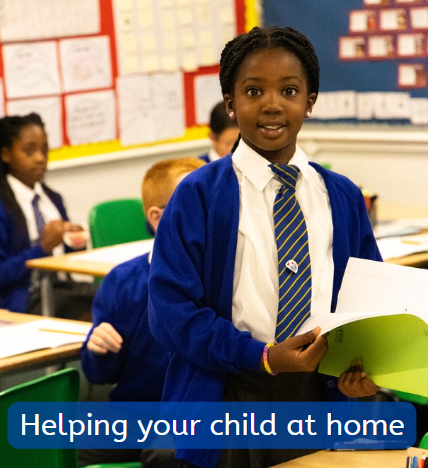Helping Your Child at Home
Here at Featherby, there are always opportunities for parents and carers to be involved in their child’s learning.
From reading and maths to singing and dancing, there is guaranteed to be something for everyone!
Reading at home
At Featherby each child is expected to read at home daily, whether that is to an adult (for developing readers) or independently (for fluent readers).
Books for home reading are selected and monitored in a range of ways across the school depending on the age and ability of the child. All children work progressively through a scheme and are monitored by the class teacher.
From Year 2 onwards, children are responsible for changing their own reading books, with their reading records being monitored when the child is heard to read during guided reading.
In Reception and Year 1 we aim to monitor reading records daily and change their books twice a week.
In terms of reading, we want children to be able to:
- Enjoy reading and see it as a pleasurable leisure activity, as well as a means of following instructions and finding things out.
- Have the reading skills necessary to read a range of text types for pleasure and for information.
- To be confident and competent readers, children need to have access to a range of reading experiences.
Supporting Reading at Home
- Find a place to sit together that suits you both.
- Try to read for at least 5 to 10 minutes a day and once over the weekend. Encourage it as a pleasurable experience.
- Find some time to talk about the book as well as reading it.
- Start with the title, look at the cover and briefly chat about what you might find inside.
- At the bottom of each page, encourage your child to predict what might happen next.
- If your child gets stuck, ask what word would fit best, ask them to sound it out (if appropriate), or simply supply the word yourself.
- Read to your child. You can help your child to understand the emphasis of particular parts of the story.
- Encourage your child to retell the story you have just shared. This will give you an idea of how much they have understood.
- What happened in the story? Does this remind them of anything in their lives or anything they have read before?
- Did they think the book was funny? Did they spot any interesting words and phrases? Did they enjoy the book
How to help with reading
- Be positive - praise your child for trying hard at their reading. Let them know it’s okay to make mistakes.
- Turn off the TV! It's easier for your child to concentrate if there are no distractions.
- Give them time. Let them make a guess before you tell them the word. Help them to get the first sound or try breaking the word up into smaller sections.
- Point with a finger. Encourage them to follow the words with their finger.
- Don’t make them try too hard! It doesn’t matter if you have to tell them the word sometimes.
- Let them read their favourites. It's good practice to read the same books over and over again.
Communication
- Look out for the termly letter from your child’s year group which shares what we are learning. This gives details about what is going to be covered, as well as giving information about homework and upcoming dates.
- One of the most important things you can do to support your child is to ensure that they arrive at school on time, having had breakfast. Breakfast Club is available at the junior school and you should contact the school office for further information.
- There are many events that happen in each class throughout the year which parents are invited to… Check out your child’s Year group as well as the curriculum section to see a selection of events from this year!


Close